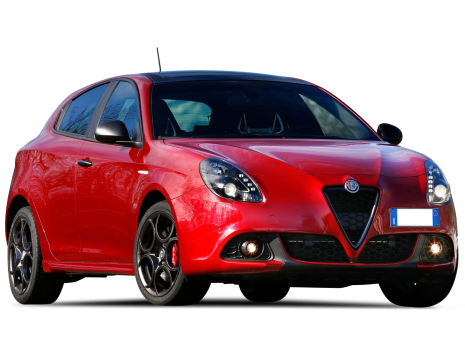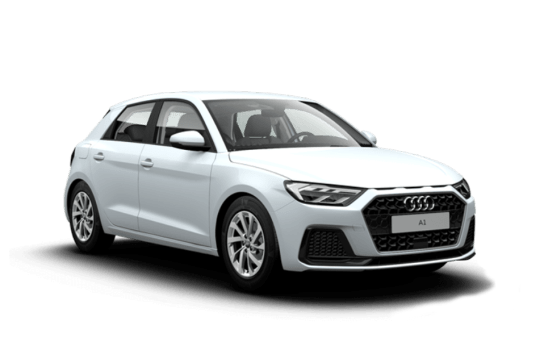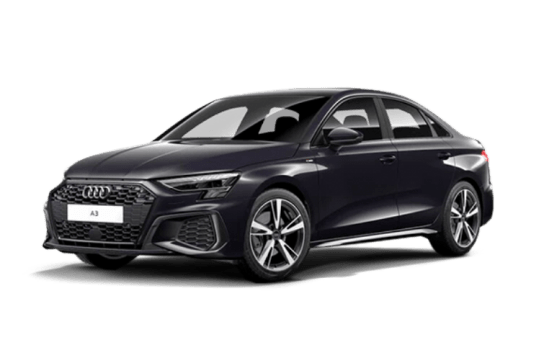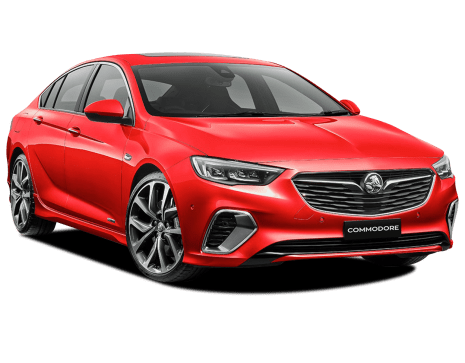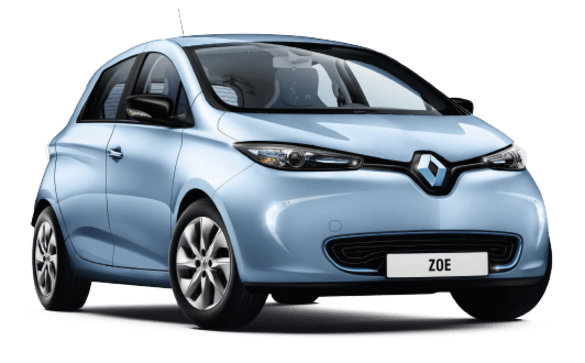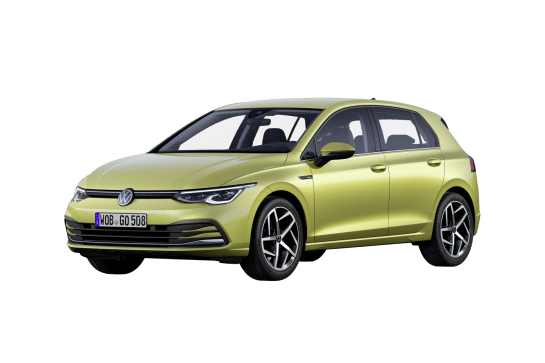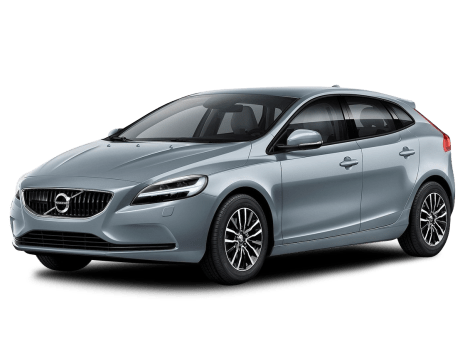
Audi S1 VS Renault Zoe
Audi S1
Likes
- Sensational engine
- Quattro drivetrain
- Great chassis
Dislikes
- Price
- The interior is a bit dull
- Stiff ride
Renault Zoe
Likes
Dislikes
Summary
Audi S1
Spoilt. That's what we are. If you're in the market for a hot hatch, you can have your pick of German-built and French ones from as little as $27,000. There isn't a dud among them now that the VW Polo GTI has had a bit of an update and you can pick and choose your style. Audi's S1 is aiming to be king of the kids with its stiffly-priced S1.
Set the finances aside and consider for a moment what's on offer. As it turns out, a lot.
| Safety rating | |
|---|---|
| Engine Type | 2.0L turbo |
| Fuel Type | Premium Unleaded Petrol |
| Fuel Efficiency | 7.1L/100km |
| Seating | 5 seats |
Renault Zoe
Renault chairman and CEO Carlos Ghosn may look like a Bond villain, but rather than threatening to end the world he's intent on saving it.
In October last year he launched Groupe Renault's 'Drive the Future 2022' strategic plan, which included a commitment to "eight pure electric and 12 electrified models as part of the [Renault] range" within five years.
But he didn't mention the head start, because Renault already had several pure electric vehicles in its line-up at that point, including the subject of this review.
In fact, the Renault Zoe has been on sale in France since 2012, and stands as Europe's best-selling electric vehicle.
In late 2017, Renault Australia dipped its toe in the electrified waters (risky...) by bringing the Zoe here within a "business-to-business and business-to-government framework."
And in July this year, due to allegedly popular demand, it was made available to private buyers through "selected dealerships"; currently two in Melbourne, and one each in Sydney, Adelaide, Perth and Brisbane.
Just under $50,000 for a city-sized hatch is hardly cheap, but it's entry-level territory for electric vehicles in this market. And what price can you put on helping to save civilisation as we know it?
Let's find out.
| Safety rating | |
|---|---|
| Engine Type | — |
| Fuel Type | Electric |
| Fuel Efficiency | —L/100km |
| Seating | 5 seats |
Verdict
Audi S17.6/10
Cars this small shouldn't be this fast and useable at the same time, but the Audi S1 is. It isn't without its problems - the ride is harder even than the Fiesta ST which might weary some prospective buyers.
It's also a bit difficult to justify the price - in its basic form it's missing a few creature comforts that you'd expect in a $50,000 car - reversing camera, high-res screen, that sort of thing.
However, in the hot hatch world, those things don't matter. It has the bragging rights, the tech and the outright blinding speed to take on the bonkers Focus ST and equally zany Megane RS. And even the Audi S3.
Renault Zoe7.8/10
The Renault Zoe is a fun to drive, ultra-efficient, practical little hatch. But the dollar-shaped elephant in the room is its price. Without the government ZEV subsidies offered in other markets, it's wickedly expensive, and with fresh competition in the shape of a new 'normalised' Nissan Leaf coming soon it'll have to work hard to wean more than a handful of small-car buyers off their fossil-fuel addiction.
Are you ready to make an investment in planet Earth's future? Tell us what you think in the comments section below.
Design
Audi S18/10
The A1 is so small it starts to strain Audi's design language. When you cram on the S-style bumpers and raccoon-eyed trim on the hatchback, it's starts to look a bit busy.
It isn't quite a shrink-wrapped A3 - Ingolstadt's designers know better than that - but it's full of Audi design cues, such as the strong, light-catching character lines, distinctive LED daytime running lights and fondness for big wheels.
Inside is along the themes of the A3, with what are becoming Audi's trademark; round eyeball air-con vents, the manual fold-down screen familiar to Q3 owners (but smaller) and a good clear dash. The handbrake jars slightly as it feels cheap to hold and wobbles a bit.
The S Sport seats are big and comfortable, and the top half of the backs are capped in plastic, which was colour-coded on our car. The rear passengers will certainly get an eyeful of whatever terrifying hue you've chosen, so choose wisely.
Despite the five doors, the back seats are occasionals, like the Mini the A1 is gunning for, and the boot is very small, but okay for shopping for couples or singles.
Renault Zoe
Renault claims no less than 60 patents came out of the Zoe's development, but while BMW's i3 is as hip as Kendrick Lamar on his third encore, and even Toyota's long-serving Prius hybrid still looks ready to roll onto the set of the next Avengers movie, this little hatch isn't shouty at all.
It seamlessly merges into the automotive landscape. A cute, small car with a few flashy blue bits in its head and tail-lights giving the only clue to its distinctly unusual internals.
Underpinned by the same platform as the Clio (with an identical wheelbase) the Zoe is slightly longer (+21mm), fractionally thinner (-2mm) and quite a bit taller (+114mm) than its conventionally powered sibling.
Lead exterior designer Jean Sémériva has literally left his mark on the car, with a full-size thumb print applied in low-relief to the rear door handles. Nice touch.
And monsieur Sémériva has shown admirable restraint in a cool design combining soft curves around the nose, front guards and rear end, with sharp character lines top and tailing the car's flanks.
Vaguely diamond-shaped tail-lights mix a clear lens cover with those nifty blue highlights and brilliant LEDs for an arresting brake and indicator display.
Open the door and a similar blend of tech and tradition creates a clean and simple interior, with strategically placed bright-metal finishes highlighting key elements.
A broad TFT digital instrument screen sits under a minimalist hood, with the 7.0-inch 'R-Link' multimedia screen dominating a central stack lifted by a shiny black face and an illuminated blue keyline around the heating and ventilation controls.
A printed circuit pictogram on the front headrests and left-hand side of the dash is a creative reminder of the Zoe's means of propulsion. And the front seats feature a decorative curved panel, defined by dark piping on each side of the backrest.
Tech highlights include the TomTom Live nav system's ability to describe a circle showing the car's operational radius on current charge, determining whether you can reach a nominated destination. It also taps you into weather updates, traffic danger zones and Renault Assistance.
Plus, the drive-management system can report on energy usage and assess driving behaviour, so lead foots have nowhere to hide.
Practicality
Renault Zoe
Like most compact hatches the Zoe offers plenty of space up front and gets a bit squeezy in the back. Although the first surprise is that there's no height adjustment for either front seat.
Happily that wasn't a big issue. At 183cm I was still able to find a good driving position, with storage running to two cupholders (one small, one laughably tiny), plus a pen slot and two oddments trays in the centre console. The second of those trays houses a 12-volt outlet, SD card slot, 'aux-in' jack and USB port.
There are small bottleholders and storage pockets in each front door, a medium-size (7.0-litre) glove box with an open tray above it, and a small tray on the lower part of the dash on the driver's side.
Rear head and legroom is passable for a car of this size, but storage is limited to modest door bins and a single cupholder at the back of the centre console.
However, it's cargo space where the Zoe really raises eyebrows, with 338 litres available (to the parcel shelf) with the single piece rear seatback (as in, it doesn't split-fold) upright.
That's enough to easily swallow our three-piece hard suitcase set (35, 68 and 105 litres), or the CarsGuide pram. In fact, we were able to fit the largest suitcase and the pram at the same time, which is mighty impressive for a city-sized hatch. Push the rear seat flat and space grows to 1225 litres (to the roof), which is heaps.
Carpeting for the boot has been sourced from the cheap 'n' cheerful bin, but there are D-shaped anchor shackles, decent lighting and handy bag hooks back there.
The boot's unlikely volume is partly due to the absence of a spare of any description, a repair/inflator kit being your only option. And in case you were wondering, towing is "prohibited" (Renault's word, not mine).
Price and features
Audi S17/10
Starting at $49,900, Audi S1 is by far the priciest of the small-hatch based hotties, at least until Mini's madcap JCW arrives. This price is just almost double that of VW stablemate's forthcoming 2015 Polo GTI.
Standard on the manual-and-five-door-only S1 is a ten speaker stereo, climate control, ambient lighting, remote central locking, cruise control, satnav, headlight washers, auto headlights with xenon low beams, partial leather seats, leather-bound steering wheel, auto wipers and rear parking sensors.
Our Misano Red ($990 option) came with two extra packs. The Quattro Exterior Package ($3990) adds bi-xenon headlights with red trim, red brake calipers, spoiler, quattro logos on rear doors (ahem!) and five-spoke 18-inch alloys that are part matt black, part polished.
The Quattro Interior Package ($2490) adds S Sport front seats with Nappa leather and red backrest capping with quattro logo (ugh), more nappa around the cabin with contrast stitching, flat bottom steering wheel and red rings on the air vents.
There's an S Performance Package that brings the best of these two packs together for $4990, saving about $1500 and the embarrassment of the quattro logos.
Our test car also had aluminium air vents ($220), black contrasting boot lid ($300) and black roof ($720).
The grand total is a sobering $58,610. There's a couple more options that'll easily pop you over $60,000.
Audi's MMI is dash-mounted in the A1 as there's no room on the narrow centre console. As ever, it works well and doesn't take much getting used to. The satnav is a bit grainy on the smaller screen but is otherwise a competent unit.
Sound is from a ten-speaker stereo and you can stream across Bluetooth or plug in a memory card. The sound was good but the system did take a while to find the phone whenever we came back to the car.
Renault Zoe
Built at Renault's Flins plant, 40km west of Paris, on the same line as the Clio, the Zoe's offered in two grades; Life ($47,490, before on-road costs), and Intens ($49,490 BOC) as tested here.
That's big bucks for a little car. At just under $50,000 you're looking at internal-combustion competitors like the Audi A3, BMW 1 Series, and Merc A-Class. And while the Zoe's a long way from spartan, it's an equal distance away from luxurious.
That said, the standard features list includes, climate control (with remote 'pre conditioning' activation), 16-inch 'Black Shadow' alloy rims, cruise control, 3D Arkamys audio (with DAB radio, voice recognition, two 'boomer' speakers, two rear bi-cone speakers, and two tweeters), 'Renault Smartkey' keyless entry and start, auto headlights, and rain-sensing wipers.
Plus, you also get rear parking sensors, a reversing camera, the 7.0-inch 'R-Link' multimedia system (with 'Text to Speech' function), one-touch driver's window (the base Life grade misses this), a leather-trimmed steering wheel and gear knob plus black and grey cloth trim (with snazzy contrast stitching).
The DRLs may be LED but the headlights are halogen (a sure sign of this car's age), Apple CarPlay and Android Auto are MIA, and metallic paint, as per 'our' car's 'Zircon Blue' finish is $550 extra. 'Glacier White' is the only no-cost option from six available shades.
Under the bonnet
Audi S18/10
This is where the action is. The S1's tiny body packs a 2.0-litre turbocharged four-cylinder producing 170kW and 370Nm of torque. The S1 will streak to 100km/h in 5.9 seconds thank to the traction aid of quattro all-wheel drive.
Despite a pretty solid hammering during its week with us, including more time than we'd have liked in Sydney traffic, the stop-start function helped deliver a pretty reasonable 10.2L/100km, however that's a long way over claimed 7.1L/100km.
All Audi S1s come with a six-speed manual, so dual-clutch haters can save the whining. The only downside from not having a self-shifter is the ECU can't deliver the boy racer farts, parps and crackles of the other S cars.
Renault Zoe
The Zoe is powered by Renault's R90 synchronous electric motor, producing 68kW from 3000-5000rpm and 225Nm from step-off. Drive goes to the front wheels through a single reduction gear auto transmission.
Claimed acceleration for the city-specific 0-50km/h run is a handy 4.0sec, with the more grown-up 0-100km/h sprint taking a leisurely 13.2sec. Flat biscuit is 135km/h.
Efficiency
Renault Zoe
None. Next question...
You can have the argument about fuel consumed and source emissions produced in generating the energy required to charge the Zoe's battery, but the fact is this car doesn't consume any fossil fuel and produces zero tailpipe emissions. Helped by the fact it doesn't have a tailpipe.
When launched in 2016, the Zoe's upgraded 41kWh 'Z.E. 40' high-energy lithium-ion battery ranked as the highest energy density automotive unit available.
Developed in collaboration with LG Chem in South Korea, it houses 12 modules (of 16 cells each) for a total of 912 individual cells and weighs in at 305kg.
Renault lists a driving range of 403km for the New European Driving Cycle (NEDC), with a real-world number of 300km a more realistic estimate. And that's almost exactly the range we achieved over a mix of city, suburban and freeway running in seven days with the car. Using overnight electricity rates, a full charge should average less than $8.00.
The Zoe's on-board 'Chameleon' charger allows it to be charged using different power levels (single or three-phase) through the same socket, from 3kW up to 22kW. A Type 2 charging cable (6.5m) for wall box and public charging points (in a natty canvas Z.E. bag) is included with the car.
According to Renault, a wall-box charger (not included with the car) is typically $1600 to $2000 for a residential installation and a mid-range 11kW unit will allow you to charge up in around four hours. High-powered 'Fast' and even juicier 'Rapid' charging points would reduce that time appreciably.
The dash indicator displays charge level and remaining range calculated over the last 200km of driving. A reset function can drop that to an average of the last 30km.
We'll touch on it further in the Driving section but regenerative braking, low-rolling resistance tyres, and 'Eco' mode (reducing air-con load and motor output) are big contributors to maximum range.
And while cabin cooling comes courtesy of a conventional a/c unit, heating is far more exotic. The Zoe's 'Heat Pump' system traps calories in the ambient air outside the car, with a pump compressing and heating them, then directing the heated air into the car, with no impact on range. Super clever.
Driving
Audi S18/10
If you're buying the S1 as a comfortable urban runabout with a cool badge, you're half right. While the seating for front passengers is certainly supportive, the hard suspension tune will ensure you're well aware of road surface imperfections.
Thankfully, what it missed out on in the ride department it makes up for in every other way - the S1 is a rocket. The 2.0-litre turbo jammed under the bonnet has almost no lag and is paired with a slick six-speed manual that is terrific fun to manhandle through the gears.
The way the S1 picks up speed when it's on boost is addictive and licence-endangering. A flattened accelerator in second or third will obliterate just about anything this side of $100,000 and you'll be having more fun in this than big brother S3 because the chassis is more adjustable and there's a bit more life.
You can hear the turbo sing to accompany the bassy exhaust growl. Hit the massive brakes hard and the car remains stable even over rutted roads. Turning the wheel brings almost-instant turn-in, mashing the throttle again a fun little wriggle. It's superb.
You'll have to be a bit patient with the throttle to get the wriggle, though - give it too much too early and it will want to push wide, the quattro system shuffling power around to try and quell understeer while the electronic diff fiddles with the braking system to do the same thing. It gets there in the end, but you're better off meting out the power with your right foot for maximum rewards.
It's tremendous fun point-to-point on a twisty road - despite being a bit heavy for its size (1415kg), it's as chuckable as the next best thing, the Fiesta ST.
Renault Zoe
Some believe cars have a soul, but the Renault Zoe expresses its feelings with a distinctive accent, the car's 'Z.E. Voice' function giving an audible warning to pedestrians up to 30km/h (when wind and tyre noise take over).
The whirring hum sounds like The Beach Boys warming up the theremin for a rendition of 'Good Vibrations'. Spooky and fun in equal measure.
Like all electric cars the Renault Zoe accelerates quickly from rest, thanks to the motor's ability to deliver maximum torque (225kW) from step off.
At 1480kg (battery 305kg) the Zoe is 177kg lighter than an equivalent Clio, so it's snappy in its natural city habitat, but thrust begins to taper off markedly around the 55-60km/h mark.
The single-speed, reduction gear automatic transmission combines with the motor's sewing-machine smoothness to provide close to perfect drive delivery.
Sitting on the same 'B platform' as the Clio (and 20 other Renault–Nissan–Mitsubishi Alliance models) the Zoe features a strut front, beam rear suspension set-up.
Ride comfort is surprisingly good for such a small hatch, and the battery's location under the floor sets up a centre of gravity 35mm lower than the Clio's, so despite a 59 per cent front/41 per cent rear weight distribution, the car feels well planted in corners.
The standard 16-inch alloy wheels are shod with Michelin Energy E-V low-rolling-resistance tyres (195/55), which won't win you pole on a qualifying lap, but are commendably quiet.
There are three driving modes, with the dash graphics aligning to each – Eco (green), Neutral (blue), and Dynamic (violet).
But ECO mode should be reserved for hardcore environmental warriors only. Press the console-mounted button and power from the motor is reduced and air-con output is limited.
It may increase range by a claimed 10 per cent, but what price your sanity? This setting sucks out the car's will to live, and thankfully a second press of the button or pinning the throttle pedal to the floor sees full-strength service resumed. Phew.
The regenerative deceleration and braking system distributes braking force between the clamping of the brake pads and the engine on over-run to maximise battery charge.
While the BMW i3's regen system will have you head-butting the steering wheel (not really) when you get off the throttle, the Zoe's system is more subtle, and watching the dash graphic – a blue AA-style battery surrounded by rising rings of energy – is reminiscent of 'the machine man' animating in Fritz Lang's Metropolis.
Speaking of brakes, the fronts are relatively delicate 258mm vented discs and the 9.0-inch rear drums look like miniature versions of the elaborately fluted units found on 1920s Grand Prix racers. They're beautiful and work well.
Some niggles. The wipers skip and stutter in light rain, the lightweight doors feel clangy when you close them, and the R-Link multimedia system is annoyingly flaky when recognising content (or not) via Bluetooth or USB from a mobile device.
Safety
Audi S17/10
Six airbags, stability and traction control, ABS, brake assist and distribution all add up to a five star ANCAP rating.
Renault Zoe
The Zoe hasn't been assessed by ANCAP but was awarded a maximum five-star ranking by EuroNCAP in 2013, with annual reviews allowing it to maintain that score through to April this year.
Active crash prevention tech includes ABS, EBD, EBA, ESC, traction control, tyre-pressure-loss sensors, rear parking sensors and a reversing camera.
But forget about more recent systems like AEB, lane-keeping assistance, blind-spot monitoring, cross-traffic alerts or adaptive cruise.
Interestingly, the Zoe continuously monitors the state of each cell in the battery pack and will switch off current immediately if it senses an overheating-style abnormality.
If an impact is unavoidable the airbag count runs to six - driver and passenger front, front side (head and thorax), and full-length side curtain.
There are three top tethers and two ISOFIX positions for child seats/baby capsules across the back row, and all seats feature Renault's 'Fix4Sure' anti-submarining design.
Ownership
Renault Zoe
According to Renault, the R90 motor is "maintenance-free", waterproof and requires no lubrication, with servicing costs "20 per cent lower than an equivalent ICE (internal combustion engine) vehicle."
Despite that, servicing is recommended every 12 months/30,000km for an estimated cost of $231 each time.
Warranty is three years/unlimited km with 24-hour roadside assist included for the first year, and three after that if you have your car serviced at an authorised Renault dealer.
The battery is covered by a separate five year/100,000km warranty.



